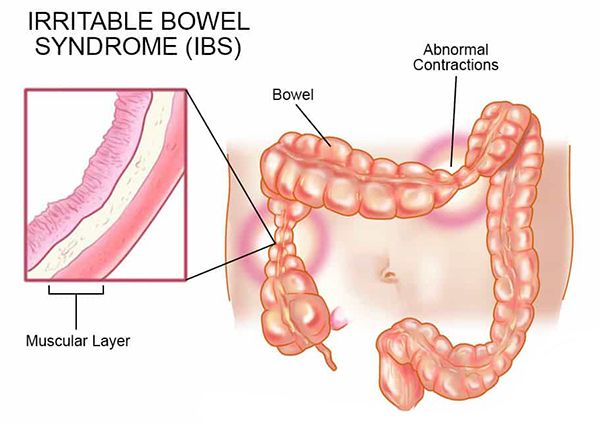
Irritable Bowel Syndrome (IBS)- sign,symptoms, treatments and foods
Signs, Symptoms of Irritable Bowel Syndrome (IBS) and Treatments
IBS is a common disorder of the large intestine associated with crampy abdomen, bloating and diarrhoea.
SYMPTOMS
- Frequent abdomen pain better by stool
- Bloating of abdomen with gas
- Frequent stools immediately after a meal
CAUSES
- Improper bowel movement:
The main function of large intestine is to absorb the nutrients and water from the digested food particles and to expel the waste through rectum and anus by the peristaltic movement of intestinal muscles. The intestinal muscles contract and relax to push the waste out of the anus.
If the muscles don’t work at the right speed for proper digestion or if the muscle coordination gets interrupted, the contents of the colon can’t move smoothly hence leads to abdominal cramps, bloating, constipation and diarrhoea – signs of IBS. - Infection and chronic inflammation of intestines:
Recurrent gastroenteritis, frequent infection of intestines with bacteria or virus contribute to IBS.
- Food Allergies:
High fat diet, eating big meals, junk foods, spicy foods, drinks with caffeine, alcohol, milk and milk products, grains like wheat, barley or rye also contributes IBS to certain people. - Stress and Anxiety
- Gut Bacteria:
Few good gut bacterias are helpful for maintaining gut health. Destruction of these bacteria by certain medicines also contributes IBS.
- Hormones:
IBS is common among menopausal women due to change in their hormone level.
COMPLICATION:
One of the major complication of IBS is gastrointestinal cancer.
LIFE STYLE MOBIFICATIONS FOR IBS:
- Eat small meals at regular intervals
- Avoid Junk foods, spicy foods, fatty foods and beverages like coffee
- Increase the intake of probiotics such as curd
- Improve physical activities
- Manage stress levels
